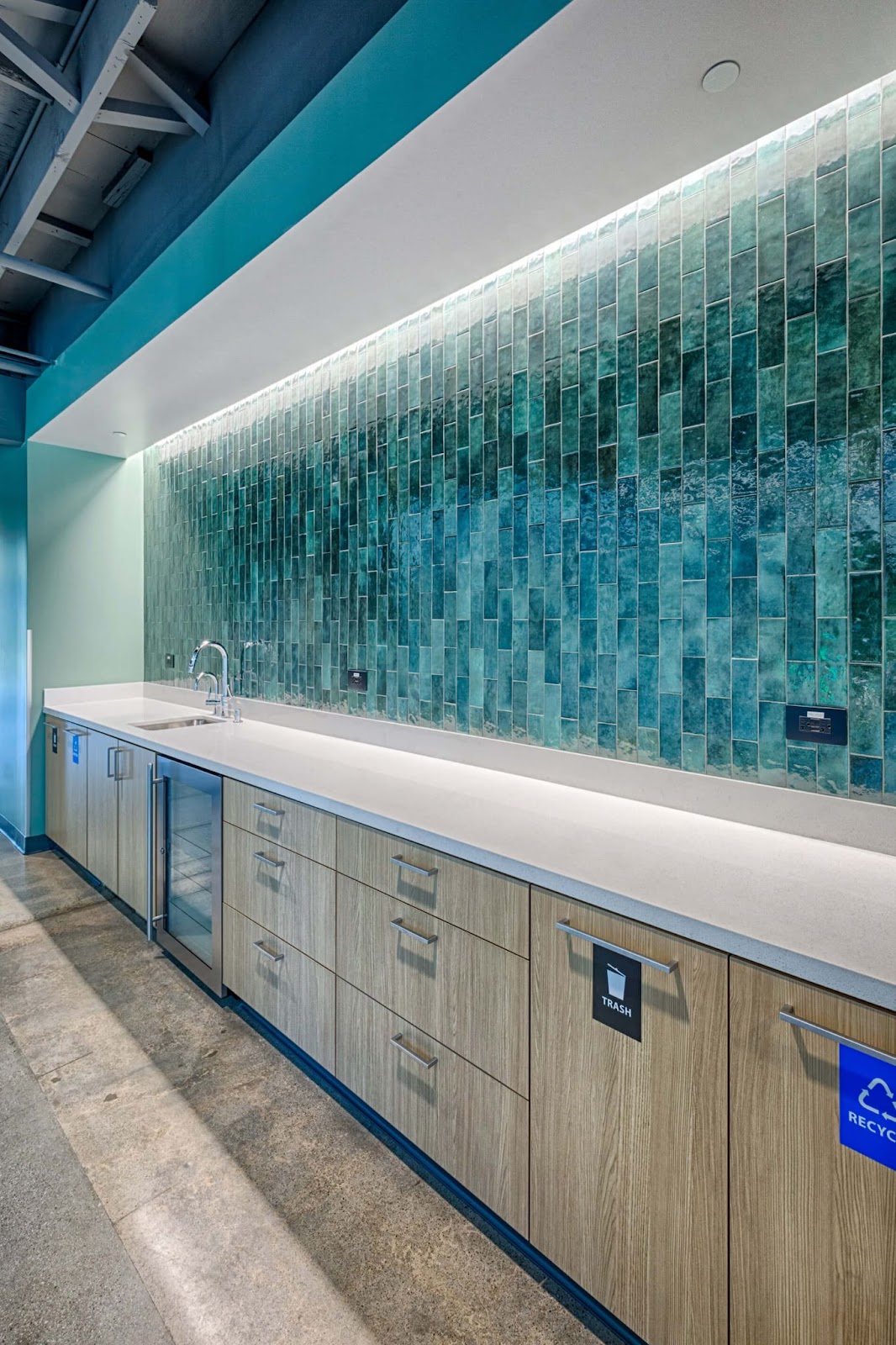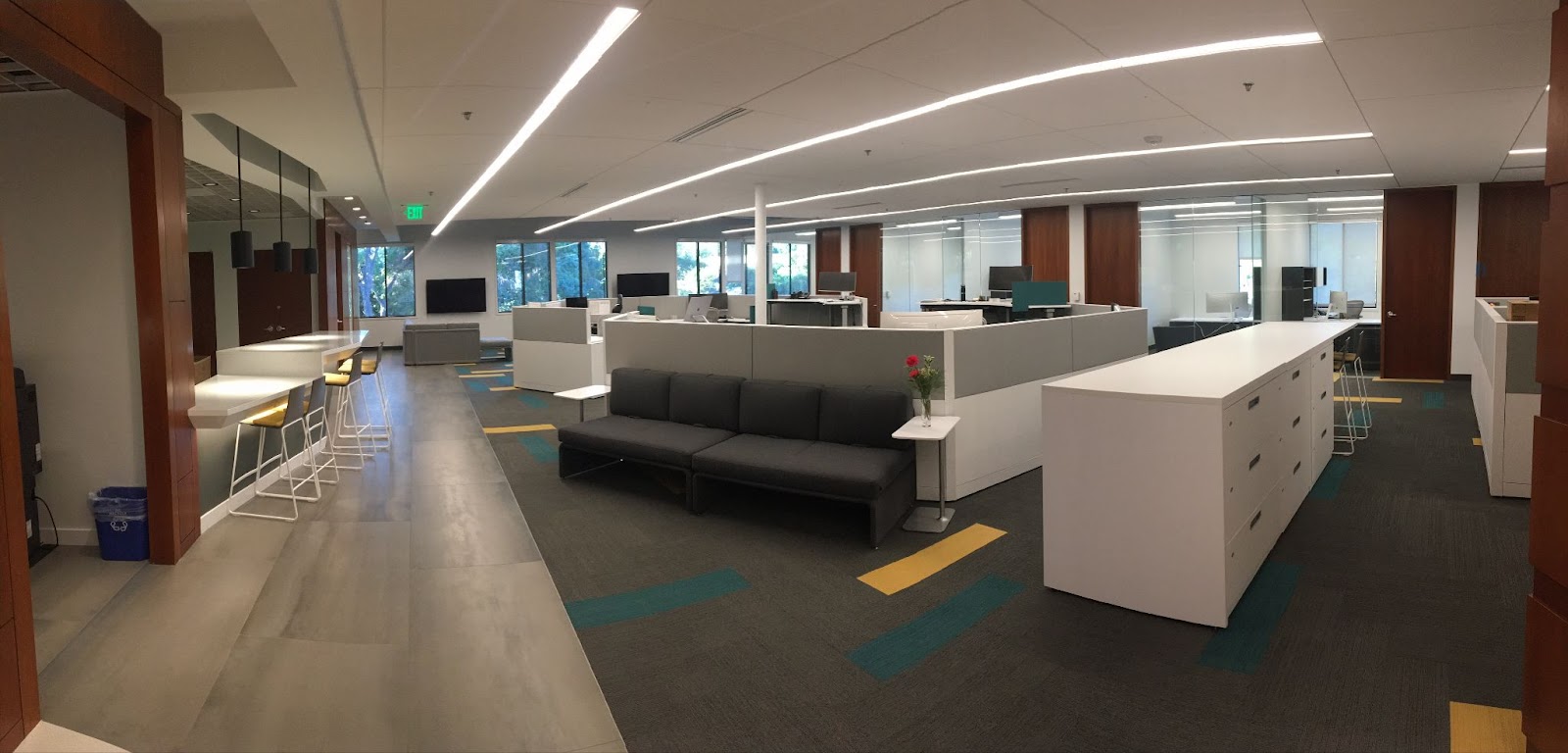Imagine your dream commercial construction space taking shape, brick by brick. Before this vision becomes a reality, a solid plan and budget are your blueprints to success. Understanding the scope of your project is a cornerstone, defining what needs to be built, refurbished, or expanded.
Your project team will transform ideas into actionable steps by bringing architects, engineers, and commercial construction contractors together. Assembling a group of professionals with the right expertise is critical for your venture’s success.
Developing a project plan is where your blueprint starts to take on dimension, bridging the gap between concept and construction, with cost estimates bringing financial clarity.
Without financial hiccups, you’ll need to secure financing and create a precise budget for this towering task.
This introduction is your foundation for navigating the complex journey of commercial construction, integrating legal compliance, risk management, and budget oversight to keep your project on track and within financial boundaries.
Understanding the scope of your project
When planning a big building job, like a commercial construction project, first, you need to understand what the job will require. Imagine you’re making a giant puzzle; you have to know what pieces you need and how they all fit together. Understanding the project scope is absolutely essential to a successful commercial construction project.
First, write down everything you want to build. Do you want a store, a restaurant, or a tall office building? Each needs different things, so be specific with what you want/need for your project. Next, think about the size. A more prominent place usually requires more money. Also, decide on how fancy your building will be because fancier ones cost more.
Remember to consider who will use your building and what they’ll need. For example, if you’re building a store, it’ll need shelves and places for people to pay. You should list all these things so you remember them.
Here’s a simple list to help you start:
- What’s the building for (store, office)?
- How big will it be?
- Fancy or simple?
- What special things are needed inside?
Understanding the project scope helps ensure you don’t miss anything important and have enough money to finish the job. This way, your big puzzle gets put together correctly.
Assembling your project team
When you start a construction job, you need a team of experts to help you. First, find a project manager, preferably a commercial construction contractor. This person is like a coach, ensuring the work is done correctly and on time.
You also need an architect, who draws the building plan, and an engineer, who ensures it’s safe and strong. Don’t forget a construction manager who watches over the building site.
Here’s a short list of people to have on your team:
| Project manager | The leader |
| Engineers | Safety and structure pros |
| Construction manager | The building site boss |
| Accountant | Handles the money |
| Legal advisor | Knows the rules |
| Contractors | They build the plan |
Meet with your team often, discuss how the work is going, and make sure everyone agrees on the plan. Building is a big job, but it’s possible to get it done correctly with a good team.
Developing a detailed project plan
Developing a detailed project plan is an important first step in your commercial construction project. Start with a clear picture of what you want to build. This includes things like the size of the building, what you’ll use it for, and what it should look like when it’s done.
Here’s what you should include in your detailed project plan:
| Project scope | Outline everything that needs to be done |
| Timeline | Estimate how long each part of the project will take. |
| Materials | List what you will use and how much they cost. |
| Labor | Decide how many people you need and their hourly wages. |
| Permits and fees | Remember to include costs for legal stuff. |
| Equipment | Include the cost of machines required for construction. |
It’s wise to plan for the unexpected with a contingency fund. With a careful plan, you will know what to expect and keep your construction project on track and within budget.
Estimating costs
Estimating costs is significant. Before you start building, you’ll need to determine the cost of everything and how you’ll pay for it.
Start with your material costs – things like wood, concrete, and metal. Prices are subject to change, so check them close to when you plan to buy them. Next, add the money you need to pay the people working on your project. We’re talking about hourly wages for construction workers, managers, and other important helpers.
Don’t forget the extra costs that aren’t bricks and hammers. These are your indirect or overhead costs, like renting machines, safety gear, and even the trailers where workers take a lunch break.
Creating a budget
Creating a budget is a super important step in getting your commercial construction project off the ground. Here’s how to make a top-notch budget:
| Write down what you need | List all the things your project will need, such as materials, workers, and permits. |
| Do your homework | Research the prices for everything on your list to determine the actual costs, not the sticker prices. |
| Add it all up | After determining the costs of everything on your list, add them together to get your project cost total. Be sure to include your contingency fund. |
| Be smart with your money | Look at your budget carefully and see where you can spend less while still having a great project. |
| Check it twice | Double-check your budget to make sure it covers everything and the numbers add up correctly. |
Secure financing
Now, it’s time to secure financing. First, take a good look at your budget. Then, contact banks or lenders and share your project plan with all the details — especially how much everything will cost. Seeing that you have all your ducks in a row will give the bank or lender much more confidence in your project and increase your chances of getting funded.
Navigating legal and regulatory requirements
When you’re getting ready for a big commercial construction project, there’s an important step you can’t skip – navigating the legal and regulatory stuff. This is all about making sure your project follows the rules and laws that are in place.
First, get to know the local building codes and permits you’ll need. These are rules that your building has to follow to be safe and legal. Don’t forget about zoning laws, too, because these tell you what and where you are allowed to build.
Next, you might need to consider the environment. Some projects need to check on things like pollution and how they affect the nature around them. This could mean getting an environmental impact report.
Also, if your project is big, you might have to get the green light from the local government or community groups. They’ll want to make sure your construction fits into the neighborhood.
To keep things smooth, it’s smart to work with lawyers who know all about these rules, so you don’t run into surprises later.
Remember, skipping this step may lead to delays or fines, so take it seriously. Following the rules and getting the right permits ensures your project gets off the ground without a hitch.
Implementing risk management strategies
When tackling a commercial construction project, it’s imperative to implement risk management strategies to avoid trouble.
Start by identifying what could go wrong, such as weather delays, unexpected costs, or permit issues. Once you know the risks, come up with a plan. This might mean setting aside extra money to cover any surprise expenses.
| Know your risks | Things like bad weather, soaring material costs, and changes in laws |
| Make a plan | Set steps to handle these risks if they appear |
| Have a backup budget | Keep extra cash in your contingency fund |
| Stay informed | The construction world changes, so keep your knowledge up-to-date |
| Talk to the pros | Construction managers are there to help you avoid problems |
By anticipating and planning for trouble, you’ll be able to keep your construction project smooth and on budget. This way, you’re prepared for the unexpected and can tackle it head-on, reducing the chance of cost overruns and delays. Successful construction is all about smart planning and being ready for any challenge.
Monitoring and adjusting the budget
It’s super important to monitor your budget during your commercial construction project. Things sometimes change, and you want to be sure you catch them quickly.
That’s why it’s a good idea to make a “Money Watch List.” Every week, peek at your spending and see if you’re sticking to your budget plan. If you notice you’re spending more than you thought on bricks or pipes, now’s the time to figure out why and fix it.
This is what smart construction managers do to stop small surprises from turning into giant money monsters.
| Weekly check-ins | Have a quick meeting to look at receipts and costs |
| Compare | Line up what you planned to spend with what you’re spending |
| Ask why | If things don’t match, ask why and dig into the details |
| Adjust | Find ways to stay on track, like choosing different materials or rescheduling work |
| Update everybody | Let your team know about any changes |
Maintaining communication and collaboration during the project
Effective communication and collaboration are the backbone of any successful commercial construction project. Keeping all team members and stakeholders on the same page ensures a smoother workflow and significantly impacts the project’s ability to stay within budget and on schedule.
Effective communication strategies
Implementing strong communication strategies is essential to managing a commercial construction project efficiently.
Regularly scheduled meetings should be a staple to keep every team member updated. Depending on the project phase and complexity, these meetings can be held weekly or bi-weekly, ensuring that any issues are addressed promptly before they escalate.
Additionally, detailed reports and updates should be circulated through email or a dedicated project management platform to document progress and key decisions.
Role of collaboration tools
In today’s digital age, various tools and platforms facilitate seamless communication and collaboration. Tools like Slack, Microsoft Teams, or Asana integrate different communication needs into one platform, providing a central hub for messages, file sharing, and project timelines.
Utilizing these tools helps maintain a clear and accessible record of all communications, which is crucial for accountability and transparency.
Communication with stakeholders
Maintaining regular communication with all stakeholders, including project sponsors, future tenants, and community representatives is vital. This might involve providing them with progress reports, adapting project plans based on their feedback, and meeting their needs and expectations.
Effective stakeholder communication fosters trust and helps manage the budget more efficiently by preventing last-minute changes that can lead to additional costs.
Avoiding miscommunications
Miscommunication often leads to errors, increased costs, and delays. To avoid these pitfalls, it’s important to ensure that all communication is clear and understood by all parties.
This might involve using clear, straightforward language, confirming that recipients have understood the messages as intended, and providing ample opportunity for questions and clarifications.
Common mistakes and how to avoid them
Navigating the complexities of commercial construction is challenging, and certain common pitfalls will derail even the most well-planned projects. Being aware of these issues and understanding how to avoid them is crucial for project success.
Overlooking the planning phase
One of the most significant mistakes in commercial construction is not allocating enough time and resources to the planning phase. Detailed planning is the foundation upon which successful projects are built. To avoid this pitfall:
- Engage all key stakeholders early in the process to define project scope comprehensively.
- Utilize professional consultations and site evaluations to address potential issues in the early stages.
- Ensure that all plans are detailed and approved before moving forward.
Inaccurate budgeting
Underestimating the budget might lead to funding shortfalls that stall your project, making accurate budgeting essential. Work with experienced estimators to ensure all potential costs are considered. Include a 10-15% contingency fund to manage unexpected expenses. Regularly review and adjust the budget as the project progresses.
Poor communication
Poor communication causes misunderstandings, resulting in costly errors and delays. Effective communication strategies include:
- Establishing a clear communication plan that outlines how information will be shared among team members and stakeholders.
- Utilizing project management software to keep everyone updated in real-time.
- Holding regular project meetings and insisting on documentation of all communications.
Regulatory non-compliance
Failing to comply with local building codes and regulations will likely result in fines, delays, and even project shutdowns. To avoid this pitfall:
- Stay up-to-date with all relevant regulations and ensure all project plans are reviewed for compliance.
- Engage legal experts or consultants who specialize in the construction industry to review project plans.
- Obtain all necessary permits before beginning any construction work.
Underestimating timelines
Setting unrealistic timelines puts unnecessary pressure on the team and compromises the quality of the work. To manage timelines effectively, develop a realistic schedule with buffer times for unexpected issues. Monitor progress closely and adjust timelines based on project realities. Communicate any changes in the schedule promptly to all stakeholders.
Ignoring quality control
Compromising on quality leads to increased maintenance costs and liabilities in the future. To maintain high quality, implement strict quality control processes throughout the construction phase. Regularly inspect all work against established standards and specifications. Hire experienced quality assurance teams to oversee critical aspects of the project.
Frequently asked questions
- How often should budget reviews occur during a commercial construction project?
Budget reviews should be conducted regularly, ideally after each major phase of the construction process, to ensure that the project remains on track financially. Monthly reviews are common in larger projects to address any discrepancies early.
Q: Can technology reduce costs in commercial construction projects?
Yes, adopting technology such as Building Information Modeling (BIM) and automated management systems streamlines operations, improves accuracy in material ordering, and reduces labor costs through efficient scheduling and project management.
Q: What is value engineering in commercial construction?
Value engineering is a systematic method for improving the “value” of goods or products by examining function. In construction, this means finding cost-effective ways to achieve the same design specifications, often without compromising quality or performance.
Q: How do changes in regulations affect a construction budget?
Regulatory changes lead to adjustments in project scope, requiring additional compliance measures that might increase project costs. Staying updated on local regulations and incorporating potential regulatory changes into budget planning can help mitigate these risks.
Q: What role does the procurement strategy play in budgeting for commercial construction?
The procurement strategy significantly impacts the budget by influencing the cost of materials and labor. Strategic sourcing, bulk purchasing, and early supplier involvement help secure favorable terms and prices, thus maintaining budget control.
Work with LWG Construction
When planning your next commercial construction project, choosing the right commercial construction firm will help ensure your success.
At LWG Construction, we bring precision, expertise, and an unmatched commitment to excellence. We understand the complexities involved in commercial construction, from initial planning and budgeting to execution and final handover. Our team of commercial construction contractors is dedicated to providing transparent communication and innovative solutions to meet your specific needs.
Don’t settle for less when you can work with the best. Reach out to LWG Construction today to ensure your project is handled with the professionalism and attention to detail it deserves. Let us help you turn your vision into a reality on time and within budget. Contact us now to start your successful construction journey.


